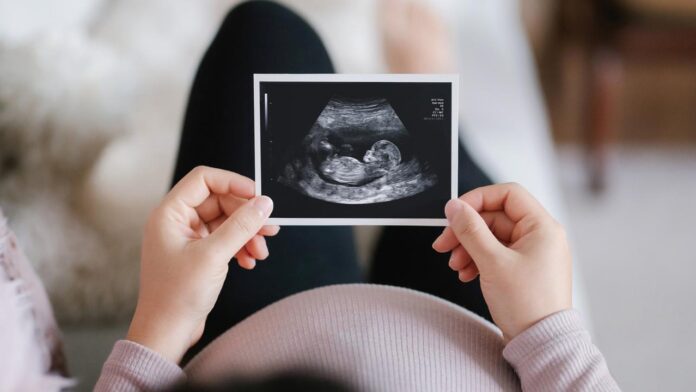[ad_1]
A medical expert has revealed the urgent test anyone over 35 should be taking if they are looking to have children, saying the simple check could help determine when couples fall pregnant.
Fertility expert Professor William Ledger says it’s important to acknowledge that while science and technology can help, age is still a key factor when it comes to falling pregnant.
For people aged 35 and over, who want the option of having children but realise “it’s not going to happen anytime soon,” Prof Ledger recommends men to get a sperm check, and for women to consider an Anti Mullerian Hormone (AMH) blood test.
The “revolutionary” test allows a woman to check her egg reserves, which can indicate how much time a woman has before she enters menopause.
He calls it a “reality health check,” but for your fertility.
“As you do when you get to 30 and you get your bloody pressure check, it’s just having a sense of looking after your own biology and not relying on nature,” Prof Ledger, the Royal Hospital of Women’s director of reproductive medicine, said.
As a general rule, Prof Ledger says people should aim to be finished with growing their family by the time the woman is 40.
“If you have a vision of two children, which I think most people do, maybe couples should start trying at age 35, or 36, and you deliver baby number one by the time you’re 37,” he says.
“That gives you the option, if you have a normal biology of having a second child without too much of a problem. If you’re happy with one child, then maybe you could leave it a bit later.
“The number of children you want should really dictate when you should be trying to start (trying).”
His advice comes as an Organon Australian Fertility Report released this week found 81 per cent of 2044 women surveyed believe women of child-bearing age should receive fertility awareness education.
66 per cent surveyed also indicated they’d like to improve their knowledge of women’s fertility.
In Prof Ledger’s medical practice, he’s seen a growing number of patients in their late 30s, and 40s who are seeking fertility treatment. Official data also reports women are having children later.
Figures released by the Australian Bureau of Statistics (ABS) in October found 60 per cent of births were to mothers between the ages of 30 to 39 years old, with 22.1 per cent of births born to mums aged between 35 to 39.
Prof Ledger is also adamant fertility advice shouldn’t just be directed at women.
“We need to educate men that women don’t stay fertile much beyond their early 40s often.
“You can’t be in a relationship with someone until she’s 45 and then decide to have a baby.
“I see those people every single week and it’s heartbreaking.”
He says that while IVF and medical intervention can help, it’s an inconvenient truth that success rates for IVF “plummets” once a woman is more than 35 years of age.
“It works for some, don’t get my wrong but there’s a lot of sadness, a lot of disappointment, a lot of women doing multiple IVF cycles, spending a lot of money, and a lot of emotional energy,” he says.
Male fertility also declines with age.
This generally happens after the age of 45 when the rate of miscarriage and chromosome problems in babies increases due to the lowered sperm quality.
Central Coast woman Teniele Spicer, 28, says being diagnosed with polycystic ovarian syndrome (PCOS) at 28, made her realise she needed to think about her fertility options earlier.
“PCOS is very common and some people will fall pregnant easily, but then you have some women who won’t get pregnant at all,” she said.
“I went on contraception from a young age, but when I came off that, I realised I wasn’t getting a period at all.”
Now 20 weeks pregnant through a mix of in vitro fertilisation (IVF), and intra-uterine insemination (IUI), when prepared sperm is placed directly into the uterus, Ms Spicer says it’s important for women talk have conversations about their fertility early.
“If it wasn’t for the conversations I had with my GP at 18-years-old that led to my diagnosis of PCOS, I doubt I would have started thinking about my fertility options until much later,” she said.
“(That) would have left me scrambling to start my fertility journey when I should have already started.”
[ad_2]
Source link


